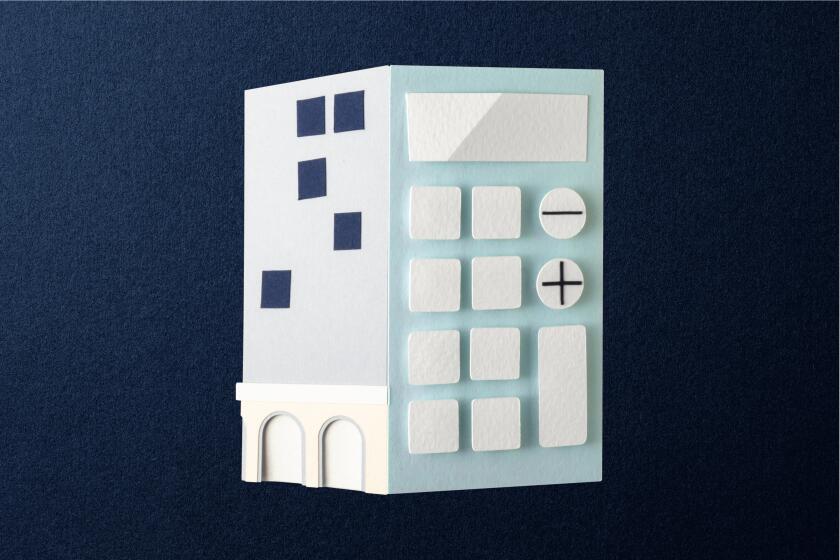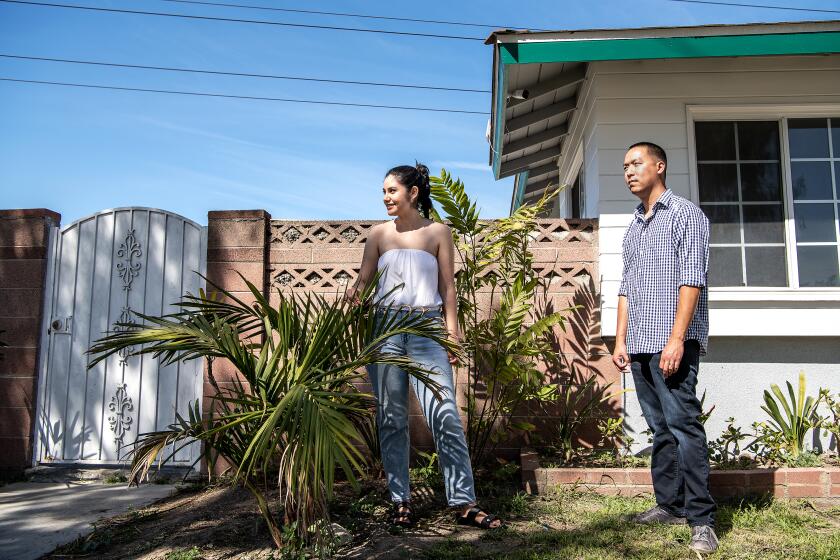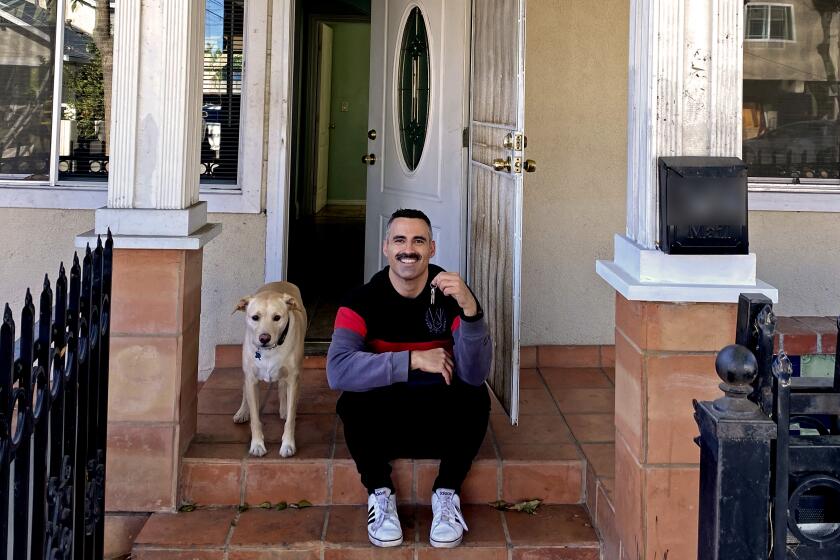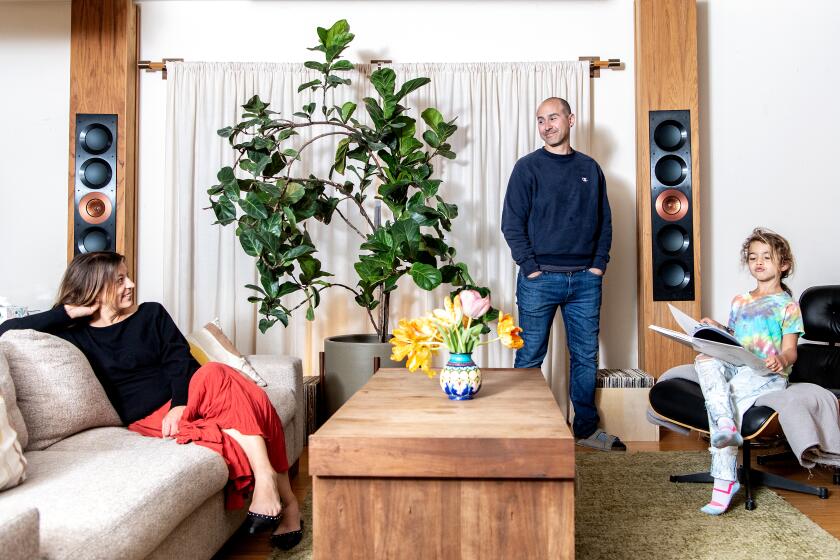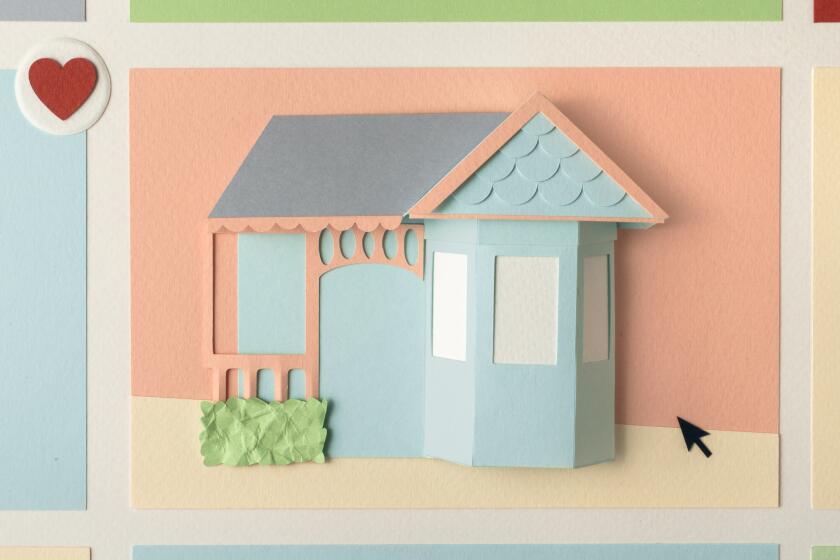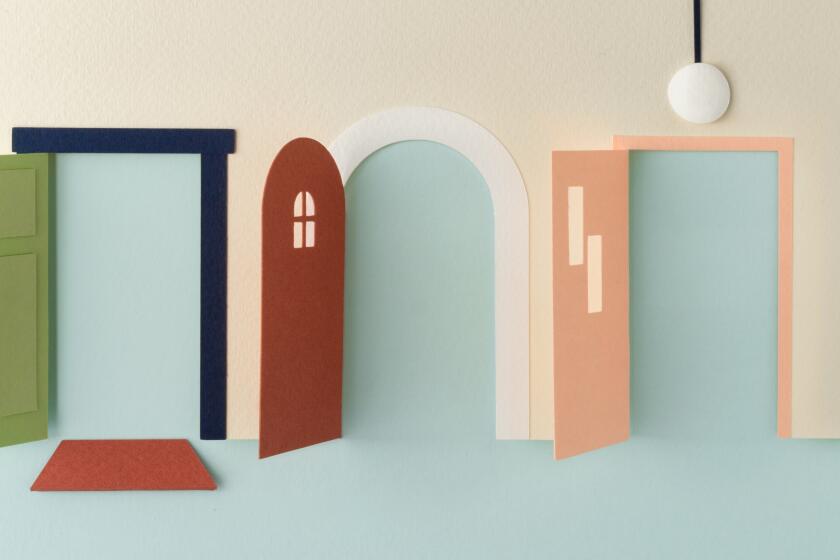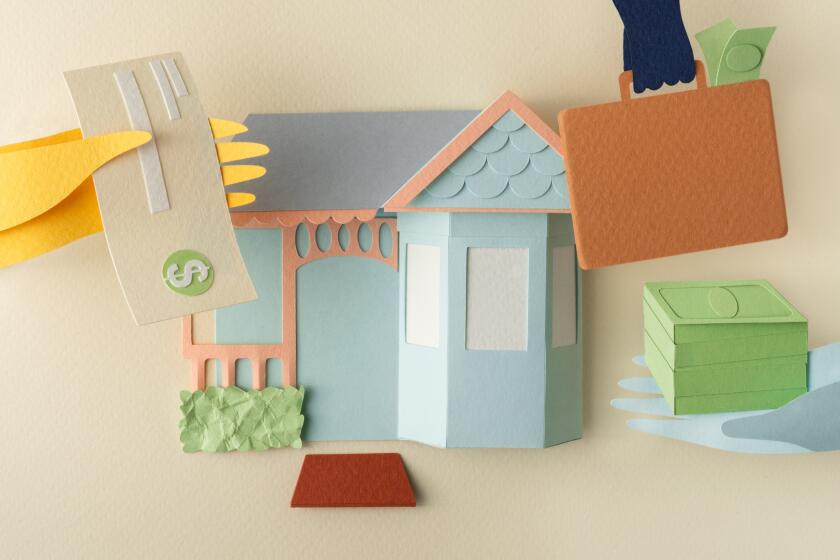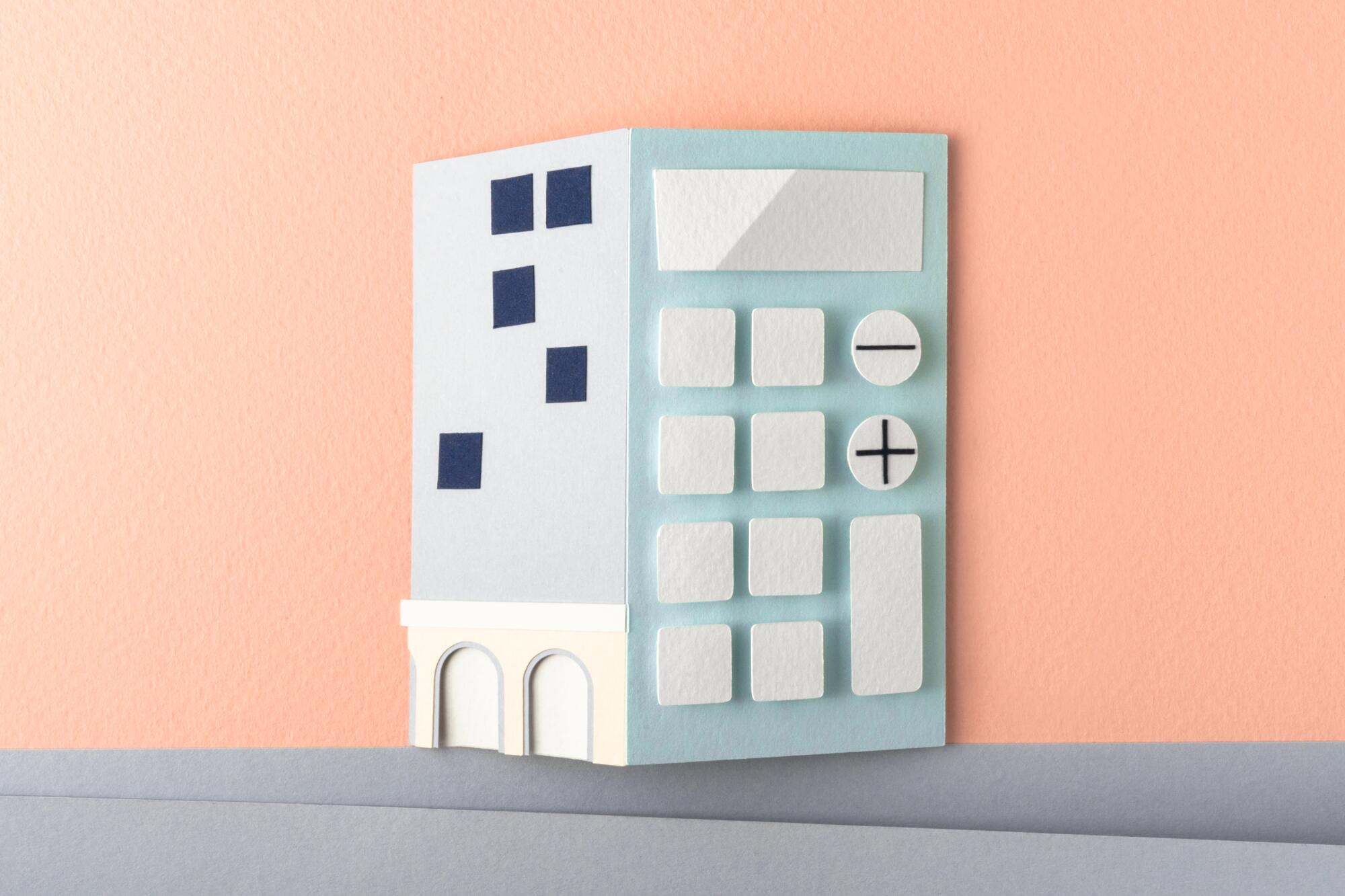
- Share via
Looking for your first home? You may already have talked to some agents, checked out the vibe in various neighborhoods and hit a few open houses.
But stop right there. According to multiple financial experts, you’re going about it wrong.
“If you don’t know what home you can afford before you start looking for a house, it is a waste of time,” said Lori Gay, president of Neighborhood Housing Services of Los Angeles County, a nonprofit lender and financial counselor.
Unless you have hundreds of thousands of dollars to spare, you’ll require a mortgage to buy a house. So you’ll need to know how much a lender will let you borrow in order to figure out which homes and neighborhoods are in your price range.
You’ll also need to decide whether the maximum you could borrow is the amount you should borrow.
To get you started on your journey, let’s hear from some experts on how to figure out how much you can qualify for and actually afford.
Use this calculator to get an idea of how much you can borrow, and explore which ZIP codes have a typical home price that will fit your budget.
Get your credit in order
Before talking to lenders, the federal Consumer Financial Protection Bureau and other experts recommend checking your credit first.
Credit reporting agencies such as Experian and TransUnion compile information about your credit history — such as your monthly student loan and car payments — into a credit report, which they each use to create a credit score. Lenders then use those scores to help determine whether to offer you a loan and if so, at what price. The lower the credit scores, the higher your interest rate.
You can access your credit report for free, from each of the three main credit reporting agencies, at annualcreditreport.com. Usually you can access this for free once a year, but you can do so weekly through the end of 2022. After you get your report, ask the reporting agency to fix any errors you find before you apply for a loan. This will give you a better shot at a lower interest rate and lower monthly payments.
By the way, your credit score won’t be on your credit report. But many banks and credit card companies, as well as services such as Credit Karma, will tell you a version of your credit score for free. You actually have several scores depending on the formula used, but the free one will give you an idea of what a mortgage lender will rely on. Be forewarned, though — you might have no credit score, or a very low one, if you’ve never taken out a loan, don’t yet have a credit card or have used credit for a short time.
There are still ways to buy a home with a poor credit score or no score at all. Just beware, those options will probably cost more than if you had a robust credit history, said Michael Stegman, a former federal housing official and current nonresident fellow with the Urban Institute.
How big a mortgage can I get?
What lenders will lend isn’t based solely on credit history. They will also need to know how much you make, how much debt you’ve run up and how much cash you’ve saved for a down payment and closing costs, which are the many fees incurred when buying a home.
To get a rough idea of what you could borrow, there are online calculators available, including one The Times produced for this guide.
If you are buying for the first time, one of the biggest hurdles probably is having enough cash in the bank. But low down payment options have expanded in recent years, and you can now typically put as little as 3% down. If you are a veteran, you can put down nothing.
There are trade-offs to keep in mind. The bigger the down payment, the less you borrow and pay in interest, which means either smaller monthly payments or fewer years in debt. On the other hand, the less you pay upfront, the bigger the return on your investment will be as the house gains value.
Most people don’t buy a home with a 20% down payment. Here’s how you can put down less and get more help with down payment and closing costs.
Buying with less than 20% down also typically requires private mortgage insurance, or PMI, which is tacked on to your monthly payment.
With or without a big down payment, you’ll probably need to borrow a lot of money to buy a house in this market. How much you’ll be able to borrow will depend in large part on how your income compares with your current debts (such as student loans and credit cards) and the housing costs you’re about to incur (principal and interest payments, insurance and taxes).
Several mortgage brokers said that lenders will generally approve you for the most common type of mortgage if your debt-to-income ratio doesn’t exceed 45%. For these mortgages — those backed by government-controlled mortgage giants Fannie Mae and Freddie Mac — it’s possible to be approved with a debt-to-income ratio up to 50%, but you’ll probably need to show that you are a really solid borrower, such as one with a really good credit score and significant savings.
If you’re one of those financially solid borrowers, you may even go above 50% if you take out a loan backed by the Federal Housing Administration or Veterans Affairs. But FHA loans — intended mainly for those with poor credit — can be costlier in the long run, and you need to be a veteran to get a VA loan.
Going for the max
Whether you should take out the largest loan you can get is another question.
Owning a home will put you on the hook for all sorts of costs you didn’t face as a renter. Remember, there’s no landlord to call. If your sink backs up or a window breaks — that’s on you to fix.
The potential downside of taking on too much debt is enormous. If you miss payments and go into foreclosure, you could lose your house and everything you invested in it — and ruin your credit for years.
One popular measure of affordability is called the 28/36 rule. That means your total mortgage payment, including property tax, insurance and any homeowners association fees, shouldn’t exceed 28% of your gross monthly income. And that mortgage payment plus any additional debt payments you need to make shouldn’t exceed 36% of your gross monthly income.
Southern California home buyers talk about how they made it through — or around — the flurry of ever-higher bids.
Lenders will go higher. But Melinda Opperman, president of the nonprofit financial counseling agency Credit.org, said she gets nervous when borrowers hit a debt-to-income ratio of 40% and above.
Nevertheless, she and other experts emphasized that the best measure of affordability isn’t the percentage of your income you’ll spend on mortgage payments, taxes and insurance every month. It’s how much money you’d have left over.
After all, someone with a 50% debt-to-income ratio who makes $200,000 annually still has more money left than most Americans earn all year. But parents with high child-care costs may find it hard to devote even 28% of their income to a mortgage.
How to proceed
Some first-time buyers go to a lender to figure out how much they can get approved for, then sit down to see how much house they can buy for that amount. But multiple experts said you should figure out the maximum payment you are comfortable with before talking to a lender, not after.
“When the lender gives you a nice number, your eyes open up so wide that you forget about all your other expenses,” said Edi Flores, a housing counselor with the nonprofit New Economics for Women. “If you can make a budget beforehand, you know what to say no to.”
“Buyer interest” letters are common in ultra-competitive housing markets like California’s, even though they raise questions of discrimination.
For that reason, Opperman said, consumers should also work out a budget before they look at online affordability calculators. “Our clients, where they felt they got into trouble, was when they did things out of order,” she said.
For help putting together your own budget, you can turn to multiple online tools or apps, some of which The Times discusses in its personal finance newsletter. The CFPB also has tips on how to calculate how much of your savings to put toward a down payment and closing costs.
When doing your budget, remember to factor in the additional costs that come with homeownership, such as larger utility bills and repairs.
Opperman said one rule of thumb is to save 1% of your home’s value each year for maintenance and repairs, though if the home is older you may want to up that percentage.
Five homebuyers tell us how they chose which neighborhood to commit to in Greater Los Angeles — no small feat.
If you expect your income to grow and there aren’t homes available at your comfort level today, you may want to make some sacrifices and take on more debt, said Scott Griffin, an L.A. mortgage broker. That’s because with a 30-year fixed mortgage, your monthly payments of principal plus interest will stay the same over three decades as your income rises.
But if you plan to cut back to afford more, the CFPB says to “take a second look at your budget and make realistic adjustments.” Don’t assume you can save $1,000 a month just by doing brunch at home.
One way to see if a larger mortgage is doable is to give it a “dress rehearsal,” Opperman said. For a few months, put the difference between that prospective mortgage payment and your current rent into savings and see how much it hurts.
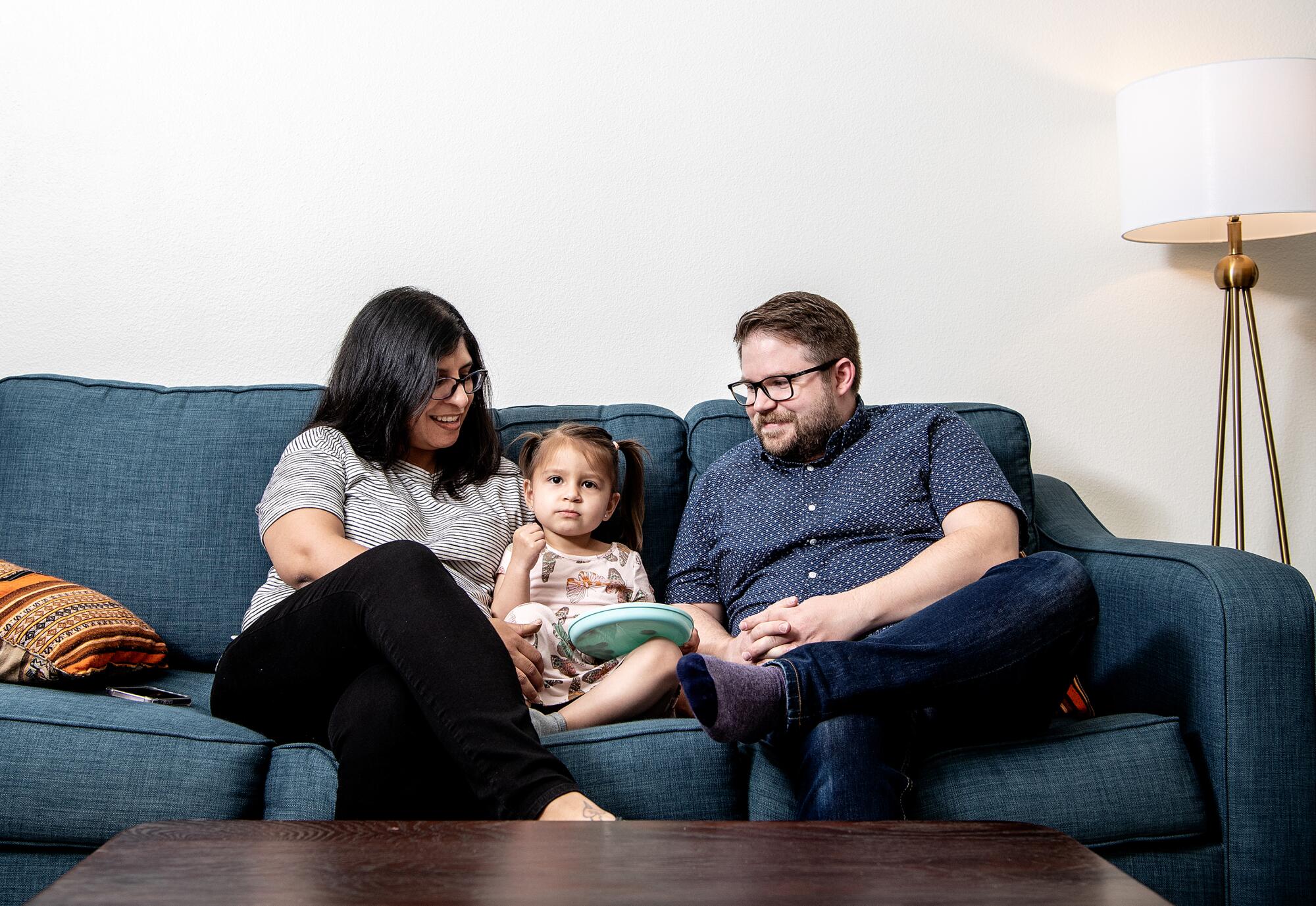
Annie Chapman and her husband, Kenny, are among those who decided not to stretch. Chapman, who works as a social media manager, made a budget before going to the lender and pushed back when told the couple could afford an $850,000 house.
“We would have like zero dollars left over for anything,” said Chapman, who instead bought a $650,000 condo in Montecito Heights, where she feels more comfortable. “I would not want to be worrying every month.”
In a market where bidding wars reach into the dozens of offers and homes sell for more than $100,000 over asking, it’s easy to get “caught up in the emotion of it” and go along for the ride, said Jan Emamian, a Compass real estate agent in Pasadena.
To avoid getting trapped, try not to get emotionally attached to a house, set a maximum amount and stick with it, she said. “It requires a lot of patience and thick skin,” Emamian said.
The self-employment wrinkle
If you are a Hollywood freelancer, gig worker or other self-employed person, you could have trouble finding a lender willing to work with you.
Julie Aragon, a Los Angeles mortgage broker, said one reason is that for most mortgages, you must qualify based on your taxable income. So if you have a lot of deductions, you may not qualify for as much as you might be able to afford.
If you are locked out of the traditional mortgage market, a common type of loan available to you is called a “bank statement” loan. Like the name suggests, you qualify based on the amount coming into your bank account each month, though lenders usually command a higher interest rate for these loans.
Uncommon ways to buy a home
If you are self-employed, Aragon recommends reaching out to a mortgage broker or lender at least a year before you plan to buy. That way you can discuss strategies, including for your tax filings, that will give you the best shot at qualifying.
A helping hand
To make everything go smoothly, multiple experts recommended working with housing counseling agencies approved by the U.S. Department of Housing and Urban Development.
These nonprofits offer classes that walk you through the entire home-buying process, including how to create a budget, obtain your credit reports and apply for a home loan.
You can search for HUD-approved counselors on the agency’s website.
If you’re a first-time buyer, Marisabel Torres of the Center for Responsible Lending said, you should take a class before going to a lender because you’ll learn from professionals who have no monetary stake in whether you buy a home. The classes are particularly helpful for people whose parents always rented and can’t be leaned on for detailed advice.
“If you are the first person in your family going down this path, you want to make sure you have a strong team behind you,” she said. Counselors “will give you the down and dirty of your finances and let you know if you are actually in a position to take this step.”
Next: Mortgages Explained
Deciding on a mortgage can be complicated. Let’s break down the basics.
In addition to help with budgets, housing counseling agencies can direct you to down payment assistance programs, help you find loans for low- and moderate-income households and teach you how to improve your credit. They can also review offers you get from lenders and help you get your prequalification or preapproval letter.
Step-by-Step Guide
More to Read
Inside the business of entertainment
The Wide Shot brings you news, analysis and insights on everything from streaming wars to production — and what it all means for the future.
You may occasionally receive promotional content from the Los Angeles Times.
